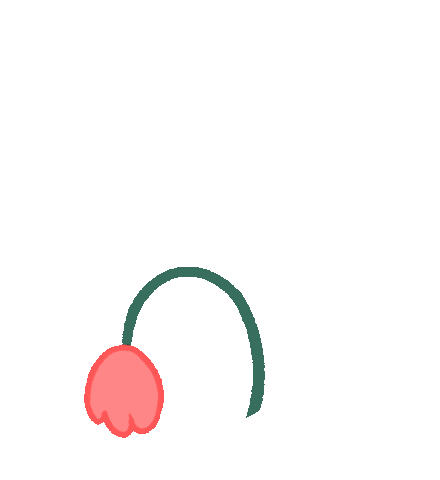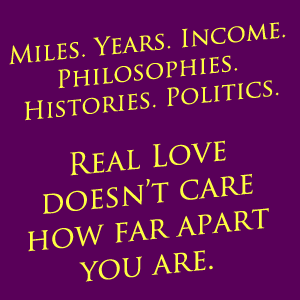|
July 20, 2020 Love and Forgiveness 7/16/20 Random Points 7/12/20 Money Issues 7/7/20 The Political Spectrum 7/2/20 The Pruning Effect 6/30/20 Heh, heh, heh . . . 6/25/20 Bad Dad, Explained 6/21/20 More to last blog 6/20/20 Fallen Statues |
 |
SITE UNDER RECONSTRUCTION July 17, 2020 Book links fixed 7/8/20 Hit counter added 6/26/20 Navigation menu revised 6/30/20 Author page renamed 7/1/20 Background color changed |
|||
    |
|||||
    |
|||||
July 20, 2020
|
Recently, a lot of my FaceBook posts have been about two things: love and forgiveness. I'd like to talk about both of those in this blog.
I said in my last blog that emotions are the connection between feelings and actions. Think of this this way: If there's no connection, then how do they relate to each other? There has to be a connecting factor. I'll get to love in a moment. Let me explain something else, first. When we get a feeling, that's not action. But how can we have an action without having some impulse? Feelings are one of those impulses. But we can hold back those feelings and consciously make a decision not to follow up on that feeling. Or, is this just another emotion? It's a reaction to the feeling that contradicts what the first reaction would do. This is fear, and its purpose is to keep us out of trouble. What about love? Love is like a fear in a number of ways, but its reactions are opposite. Whereas fear creates a sense of avoidance, love creates a sense of the need to help others. Note that I said "others". There's no such thing as "self-love" because it goes against the need to help others. "Self-love" is on the same level as self-sufficiency, self-worth, and self-perception. It means nothing when it's compared to how others see you. In fact, except for self-sacrifice, anything starting with "self-" is actually a form of selfishness or self-centeredness, and should be avoided. So, what, then, are the effects of love? I say on my Faith page that I live my life first by I Corinthians 13. The section is marked with the text in yellow; I suggest you read that section after this blog. For now, I want to address verses 4-7:
Here's how I interpret these verses. Love is patient, love is kind. We must have undue patience and kindness. Without them, we abandon and insult people. It does not envy, it does not boast, it is not proud. In love, there is no room for argument. Many will argue because the person they say they love isn't saying what the person arguing wants to hear. Someone with love will try to understand. When two people have love for each other, arguments don't ensue over each other because compromise and understanding are more important. It is not rude, it is not self-seeking Rudeness is a consequence of selfishness. And again, we have the "self-", which ignores others in favor of ones own selfish desires, which can lead to rudeness. it is not easily answered, it keeps no record of wrongs. Responding to love is difficult because we may not know what the other person needs or wants, but when they don't respond well, we forgive them out of love and forget it. Love does not delight in evil but rejoices with the truth. Any form of deception is manipulation, regardless of the circumstances. Honesty stops evil because it produces a counter to any attempt to manipulate. This can help anyone else who is dealing with this person. (This is why, being involved in politics, I'm so adamant about checking sources.) It always protects, always trusts, When we love, we serve, not take. We refuse to allow others to be hurt and trust them to let us help. always hopes, always perseveres. We hope for the best when we aren't sure how to help and do what we think is best, and does so without exhaustion. It all comes down to two things:
But from this, we see another thing:
When we have love, we embrace selflessness. But today, many people are all about what they want for themselves. Sometimes, that means making the wrong decision for someone else. And that's not only selfishness; that's a total lack of love, and causing a conflict that is the source of many of our problems. Love may mean we choose to stay away, even if this causes emotional pain. Love may mean we let the person we're with go. It may be because they are manipulating you into doing things that are without love, or they're using force to get what they want, such as physical or mental abuse. Love may mean we do things others don't like, but it's in their favor. This is a basic idea of parenting, but today, many parents go too far or try to make it about their own beliefs. Political and religious types are more guilty of this than any other groups. Businesspeople and the rich aren't far behind. Love never means giving someone else whatever they want. The parent must be stronger than the child by breaking down their desires so they realize how they're being jerks, if not worse. I have a cousin who ballooned to almost eight hundred pounds because his mother gave him whatever he wanted! (And, no, I'm not making this up!) Likewise, some in a relationship will try to make it about their wants--the woman who just wants a husband, or the man who just wants sex. Love never means throwing someone out of your life. It means sitting down and calmly talking over the situation to find a resolution. And if the other person won't listen, you may have to get tough, yourself, for their benefit. By throwing them out of your life without resolution, it entitles both sides to continue making the same mistakes with other people. Once understanding is reached, then is the time to know if you should still know each other--never before. The goal of love is to maintain relationships, not to achieve them. Refusal to maintain a relationship without trying to fix the problems shows a lack of love. And, yes, sometimes the decision may be to go separate ways. It's okay, provided that both sides learn to be better people. This will fix relationships that haven't even been forged, yet. The other way to show love by fixing relationships is through . . .
Forgiveness isn't as difficult a concept as love, but it's still hard to fully grasp. It means you understand what happened and are able to overlook it as a problem. You're trusting the other person to understand what they did wrong so they'll fix themselves for the benefit of others. You don't just say "I forgive you" and let it be. You have to acknowledge their understanding of what they did. 
This is why apologies should include an explanation. The explanation tells the other person that they understand what they did wrong. Anyone who thinks you shouldn't explain is looking for the apology for their own sake. Think of one scene from The Hills being used in commercials on Pluto TV right now. The explanation is cut off with a statement ending, "I want to forgive you, and I want to forget you." This is not what "forgive and forget" means. As I said above, it means you overlook what happened and trust the other person to make the necessary corrections. 
A big question I've seen is whether or not you have to forgive them in person. The answer is, no, you don't have to. It's far better to do so, however, so you both feel a sense of release. It's possible a relationship could be recovered, as well. Forgiveness is the key to any relationship, whether short, long, distant, or even undeveloped. It doesn't matter where you are or how long you've been apart; forgiveness is always important. The goal of forgiveness is to fix relationships. Some people need forgiveness because of how bad they realize they treated someone. And, sometimes, they want to forgive someone for what the other person may not realize they did. Forgiveness can be complicated. But it's understood on a level where we know what we're doing but not always understanding what we're doing. (Does that make sense? I hope so.)
The two concepts go hand in hand--either you have both, or you have neither. And yet, one person can have both, and the other can have neither. This is when the worst complications happen, and it's hard to deal with. Whoever you are, wherever you are, however far away, however long it's been, here's my challenge:
A key element of all this--in fact, of every time we interact with anyone--is listening. I've mentioned several times that I had planned a series on listening, and I only got the first part up. I'll talk some about it in my next blog, but I'm not promising a series. Until next time . . .
|
You are visitor number
since July 8, 2020

